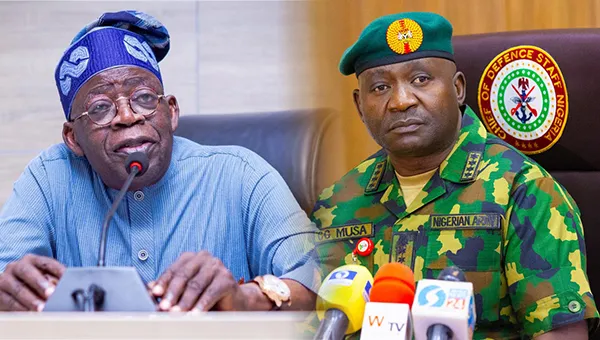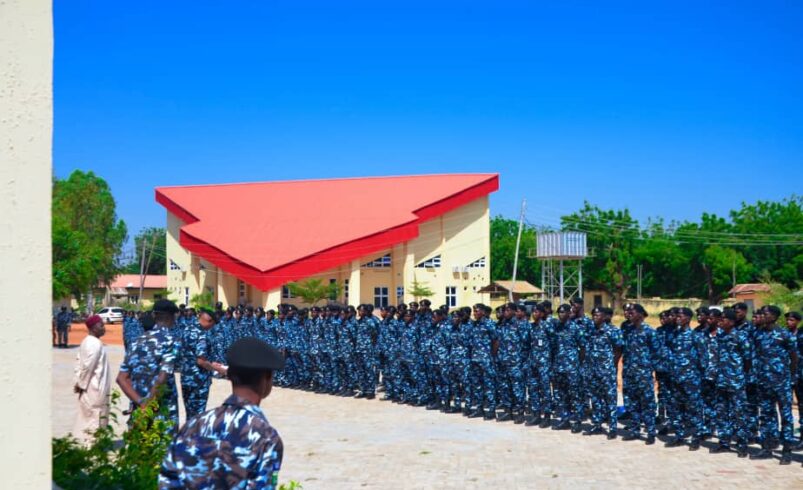President Bola Ahmed Tinubu has explained the reasons behind his decision to reshuffle the leadership of Nigeria’s Armed Forces, describing it as a strategic step to strengthen the nation’s security framework and enhance operational efficiency.
In a statement shared via his official 𝕏 (formerly Twitter) account on Friday, President Tinubu said the move was necessary to “further strengthen Nigeria’s national security architecture” in response to evolving challenges across the country.
“I have approved changes in the hierarchy of our Armed Forces to further strengthen Nigeria’s national security architecture,” the President wrote.
He announced the appointment of General Olufemi Oluyede as the new Chief of Defence Staff, replacing General Christopher Musa, who had held the position since 2023. Others affected by the shake-up include Major-General W. Shaibu, now the Chief of Army Staff; Air Vice Marshal S.K. Aneke, appointed Chief of Air Staff; and Rear Admiral I. Abbas, the new Chief of Naval Staff. Major-General E.A.P. Undiendeye retains his role as Chief of Defence Intelligence.
Expressing gratitude to the outgoing Service Chiefs, President Tinubu praised their “selfless service and dedicated leadership,” while charging the new appointees to uphold professionalism, vigilance, and unity in the discharge of their duties.
“I thank General Christopher Musa and the outgoing Service Chiefs for their selfless service and dedicated leadership,” Tinubu wrote. “I charge the new Service Chiefs to deepen professionalism, vigilance, and unity within our Armed Forces as they serve our nation with honour.”
The latest changes were also confirmed in a statement issued by the President’s Special Adviser on Media and Public Communication, Sunday Dare. The presidency emphasized that the shake-up reflects Tinubu’s ongoing effort to reposition the military for greater effectiveness in addressing Nigeria’s complex security landscape.
General Musa was appointed in June 2023 as part of Tinubu’s first major military reorganization shortly after taking office. This new round of appointments marks the President’s second major overhaul of the military command structure, an indication of his administration’s continued focus on security sector reform and renewed strategic direction.












